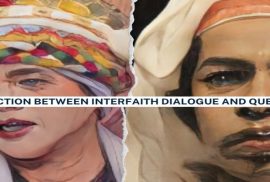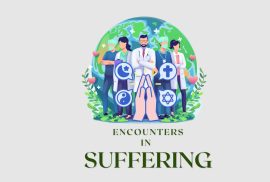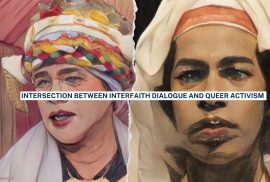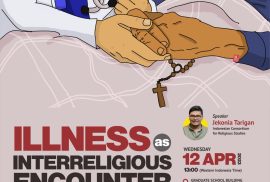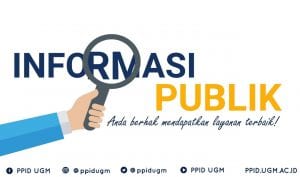Written by Johanes Koraag
Yogyakarta was once known as a city with a high level of tolerance, because, as a city of education, every year it receives students from various regions with diverse backgrounds. However, this situation has recently undergone a significant change. Events such as the refusal of non-Muslims to live in Muslim neighborhoods in Bantul, the destruction of Christian graves in Sleman, and the rise of exclusive boarding houses that only accept tenants with certain religions show that there has been a decline in the level of tolerance among the people of the Special Region of Yogyakarta. This certainly needs to be scrutinized, given special attention, and solutions sought in order to restore the image of Yogyakarta as a tolerant city.
Written by Athanasia Safitri
In Indonesian, Jewish and Judaism are translated the same as ‘Yahudi’ whereas Jewish ethnicity and religion are interrelated, and Judaism is the ethnic religion of the Jewish people. ICRS and CRCS of UGM, in collaboration with the American Jewish Committee (AJC) held a day workshop to introduce the basic principle of the Jewish tradition, religious practice of Judaism, and their community. Dr. Ari Gordon, the Director of Muslim-Jewish Relations at AJC, was invited to share the history of Judaism, the Jewish life and practice, and several contemporary issues in the Jewish world. The sessions included audio-visual material, traditional Jewish texts, and dialogue which allowed the participants to exchange questions and experiences.
Written by Athanasia Safitri
As much as it is sensitive to discuss queer[1] issues in our society, there is an academic need to address the new social reality and conduct related research. Getting an invite to talk about queer activism in relation to interfaith dialogue on the Wednesday Forum, Amar Alfikar is an Indonesian trans man activist whose work challenges religious-based queerphobia, as well as pushing queer-inclusive narratives in theology. He is the founder and director of IQAMAH (Indonesian Queer Muslim and Allies) and has been working for seven years to advocate queer-of-faith activism in Muslim contexts.
The concept of decolonization continues to develop alongside a growing understanding of the negative consequences of knowledge hegemony. Generally, established knowledge is considered as absolute truth, thereby hindering new scientific discoveries. Such knowledge is often regarded as the most authoritative and valid, therefore generating unidirectional knowledge and precluding the advancement of its various forms.
During a public lecture that took place on 17 March, 2023, at Universitas Gadjah Mada (UGM), Frans Wijesen remarked that in the discourse of decolonization studies, a sort of hegemonic knowledge emerges, which serves as a gauge of the truth of knowledge. Studies on Indonesian Islam tend to portray Christian Snouck Hurgronje (CSH) as an orientalist with a number of shadowy sides and detrimental effects on Indonesian Islam. As stated as well in Wijsen’s article published in Christian-Muslim Relations: A Bibliographical History entitled “Christian Snouck Hurgronje”, CSH has been portrayed by many researchers as a white man engaged in a great deal of intervention and manipulation of the Islamic reality. However, because there are numerous historical truths that have not been brought to light by studies that have been evolving to date, Wijsen is attempting to transmit a new perspective that sees CSH as an ordinary human being who has multiple identities. These identities led him to engage in numerous negotiations regarding his position as a scholar and advisor to the colonial administration.
Written by Athanasia Safitri
Challenges we face dealing with nature such as climate change and natural catastrophes have compelled us to reflect on ourselves and our position on Earth and toward nature. Karen Amstrong, a British author best known for her writings on comparative religion, has now invited us to take a moment to recognize nature’s central position in our spiritual life and to rediscover the sacredness of nature in these modern times. Her translated book Sacred Nature: Restoring Our Ancient Bond with the Natural World was launched and discussed on March 15, 2023 by Mizan in collaboration with Universitas Gadjah Mada and Universitas Kristen Duta Wacana.
Written by Johanes Koraag
For International Women’s Day, UIN Sunan Kalijaga, ICRS and CRCS UGM invited a female comedian to perform and speak as part of the academic discussion. The guest speaker that day was Sakdiyah Ma’ruf, a woman of Arab descent from the batik city of Pekalongan. Diyah, as she is familiarly called, is the first female solo comedian to wear a hijab in Indonesia. At the beginning of the event themed “Our Voice Comedy for Change”, Diyah conveyed the situation of the comedy world in Indonesia which is still full of patriarchal values. When she became a participant in a stand-up comedy competition, out of hundreds of participants who registered, there were only seven women including herself. Diyah consistently raises issues of women, Islam, and extremism in Indonesia. Born into a family of Hadrami-Arab descent, she was raised in a society that cared deeply about her identity as an Arab descendant who felt she had a view of the “truest and purest teachings of Islam” compared to other ethnicities.
Written by Maurisa Zinira
Research on religion calls for various ranges of novel subject material and methodology. According to the dynamics of religious cases across faith communities, attention to this variety is crucial. Religious issues frequently involve players from different social backgrounds with a variety of competing interests, making them sensitive and complex. Therefore, in hopes of fostering a thorough comprehension of the subject at hand, it is important to take into account the best approach to understand these problems.
The Communion of Churches in Indonesia (PGI) and the Indonesian Consortium for Religious Studies (ICRS) have conducted research in order to map and understand the perspectives of the youth in the discourse of Freedom of Religion and Belief (FoRB).
The research was conducted in two phases. The first phase was conducted in 2021, followed by the second phase in 2022. The first research focused on the perceptions of the Generation Z (Gen Z) towards Freedom of Religion and Belief cases in social media. The second research focused on a broader range of young people, namely Gen Z and Y (Millennials), in the age range of 18 to 34 years.

